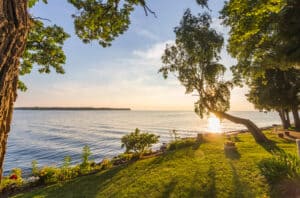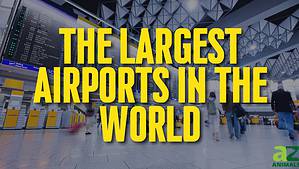The most widely used languages in the world are English, Mandarin Chinese, Hindi, and Spanish. Dutch doesn’t even come close to the top 10 list but there isn’t just one country in the world that speaks Dutch. Officially, there are 3 countries and 3 constituent countries that speak Dutch in 2024. There is one language derived from Dutch that is used today, too.
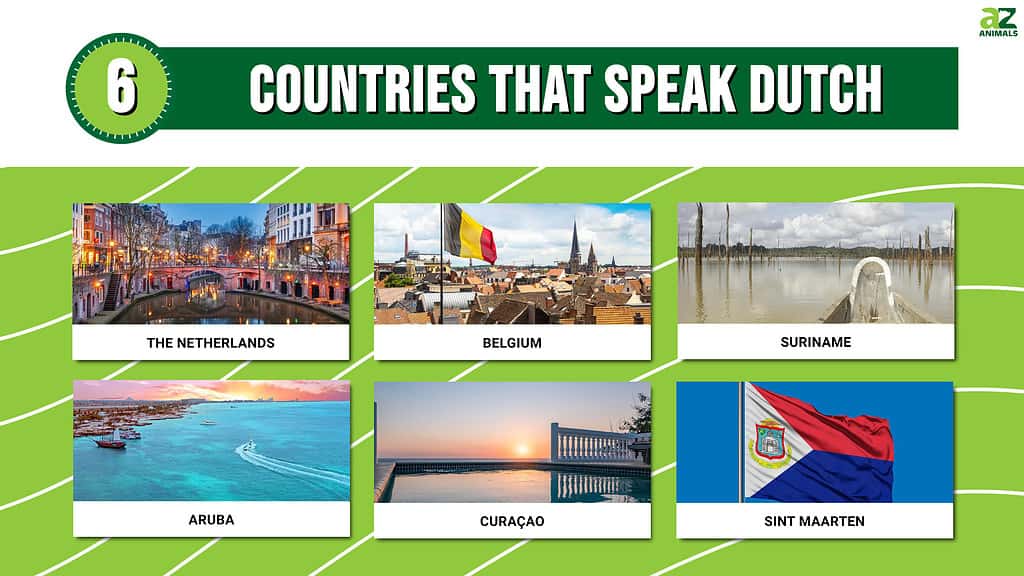
The British and Spanish empires were extremely successful in influencing most of the Americas (and other places in the world) to speak their language. The Dutch also controlled various islands in the Caribbean, some of Indonesia, and other places at some point in time. That influenced the language spoken in those countries. Let’s take a look at the 6 countries that speak Dutch in 2024.
The Netherlands
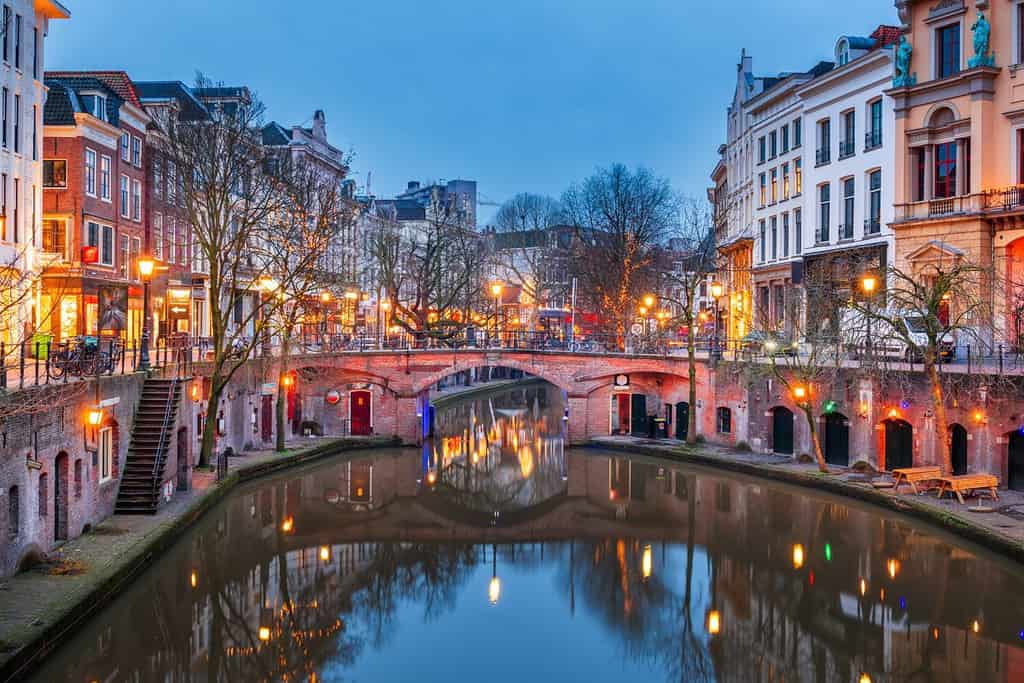
Dutch men are, on average, the tallest people in the world.
©Sean Pavone/Shutterstock.com
- Population: 17.9 million
- Capital: Amsterdam
- Government Seat: The Hague
- Monarch: Willem-Alexander
- Prime Minister: Mark Rutte
The original of the originals. The Netherlands is a country located in Western Europe. It is usually associated with the Benelux region (with Belgium and Luxembourg) because of its tight-knit economic union formed before the European Union. Beginning in the early 1600s, the Kingdom of the Netherlands sent expeditions to other places in the world. They began to colonize these parts, including regions in South America, Southeast Asia, Southern Africa, and the Caribbean.
Much of their power started to decline in the late 1700s and many of their territories fell into British hands. After World War II, a decolonization period began where the former colonies of Dutch, British, French, and other European powers began to claim independence. However, to this day, Aruba and Curaçao remain under Dutch control as constituent countries.
The Netherlands is a leader in progressive ideals, being the first in the world to decriminalize drugs, enact marriage equality, and create a successful mixed-market economy that has made the Netherlands a successful nation within the European Union and worldwide.
Belgium
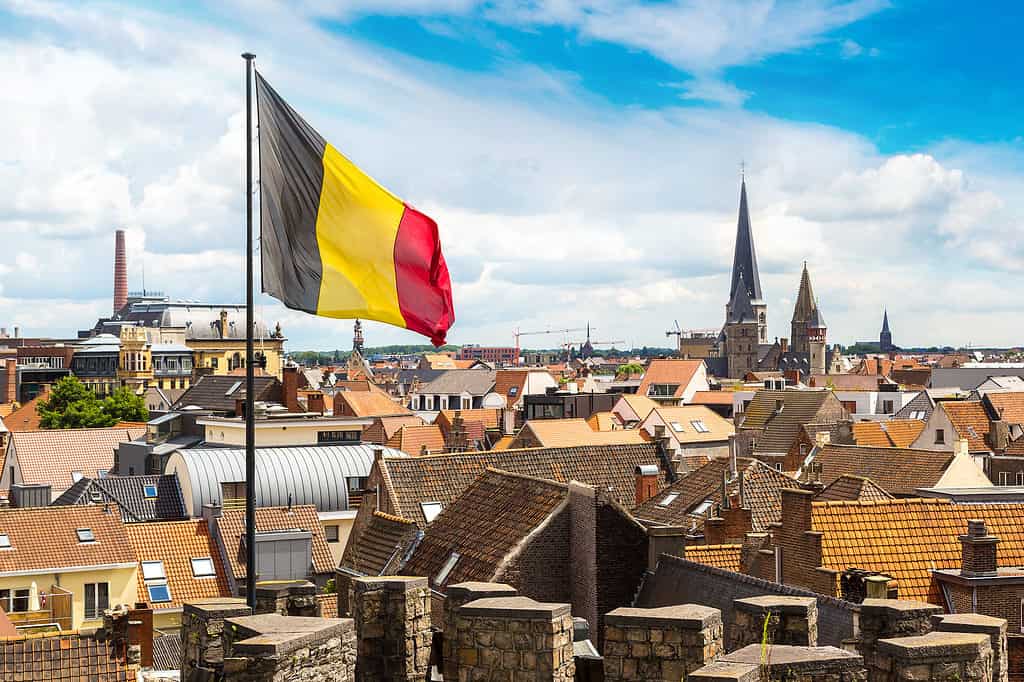
The country of Belgium is one of the top chocolate producers in the world.
©Sergii Figurnyi/Shutterstock.com
- Population: 11.7 million
- Capital: Brussels
- Monarch: Philippe
- Prime Minister: Alexander De Croo
Belgium has three official languages: Dutch, French, and German. In the region of Flanders in northern Belgium, there are dialects of Dutch spoken. The northern part of Belgium was under Dutch control, however, Belgians saw what happened in the French Revolution as a catalyst to start their secession. The Belgian Revolution started in 1830 and continued until the summer of 1831 when the first Belgian monarch was crowned. They have been independent ever since. Today, Belgium serves as a powerhouse within the European Union, having been one of the founding members of the EU and its capital, Brussels, serving as the site of many EU institutions.
Suriname
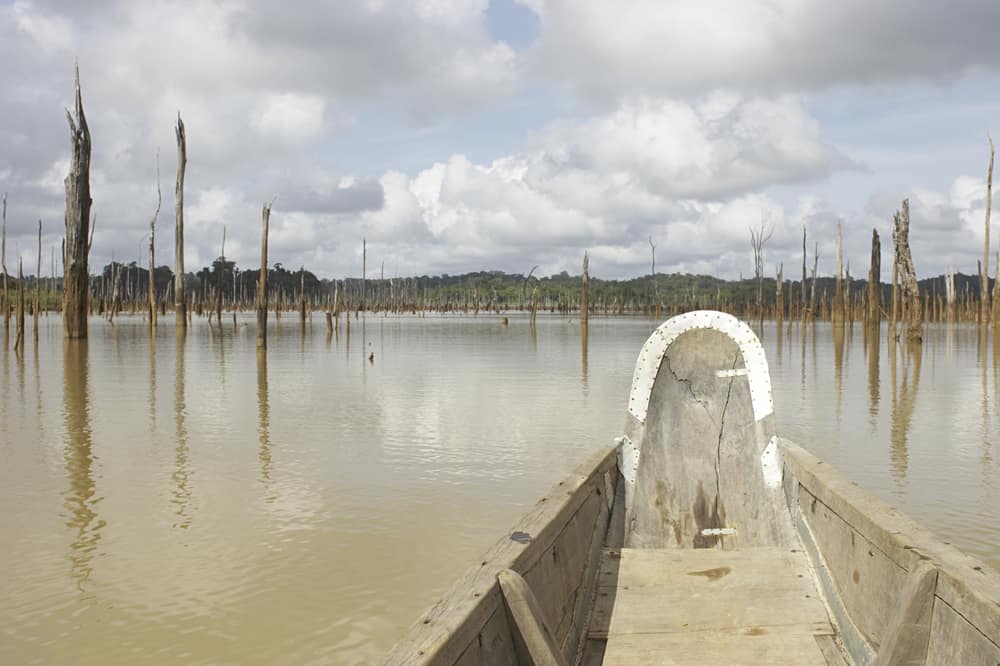
Suriname’s drivers drive on the left side of the road, only one of two countries in South America to do so (the other being Guyana).
©Jason Rothe/Shutterstock.com
- Population: 632,000
- Capital: Paramaribo
- President: Chan Santokhi
The Arawak inhabited what is now Suriname thousands of years ago before they were colonized by European settlers in the 1600s. The Dutch and English were the main colonizers, but after tensions arose, they fought against one another, which resulted in the Dutch taking full control of Suriname.
For hundreds of years, the Dutch exploited the Surinamese, even bringing slaves from other colonies to work on plantations. This has led Suriname to have a melting pot of people from all over the world. Fortunately, after a long struggle from the native population and others, full independence was granted in 1975.
Aruba
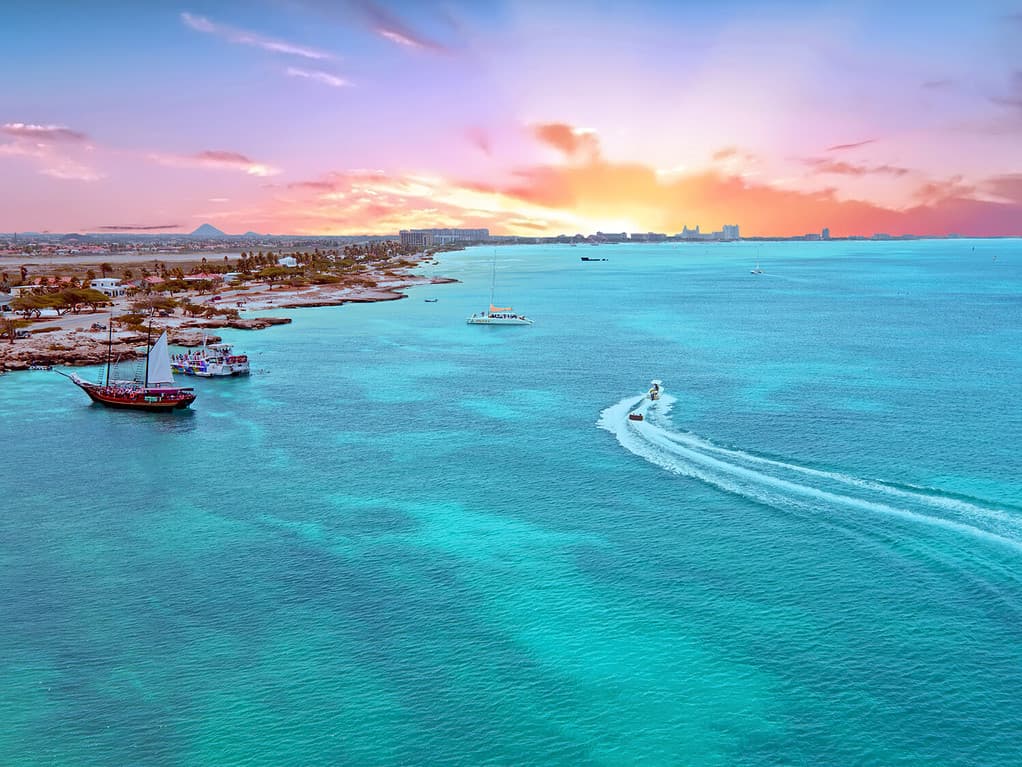
Although Aruba is a constituent country of the Netherlands, you can pay almost anything with the American dollar.
©Steve Photography/Shutterstock.com
- Population: 106,000
- Capital: Oranjestad
- Governor: Alfonso Boekhoudt
The Arawak natives have inhabited what is now Aruba for thousands of years. It was Amerigo Vespucci and Alonso de Ojeda who invaded Aruba in representation of the Spanish monarchy. The Netherlands then took control of Aruba from Spain and has ruled ever since. However, after World War II, Arubans started to fight for independence. In 1983, the Netherlands and Aruba reached an agreement to create a path for independence in a step-by-step process. However, this has been permanently derailed and Aruba is a constituent country of the Kingdom of the Netherlands.
The island country has a huge Dutch influence, but it also has been heavily influenced by Spanish customs. Because it’s a major tourist destination, many American holidays have influenced the island, as well.
Curaçao
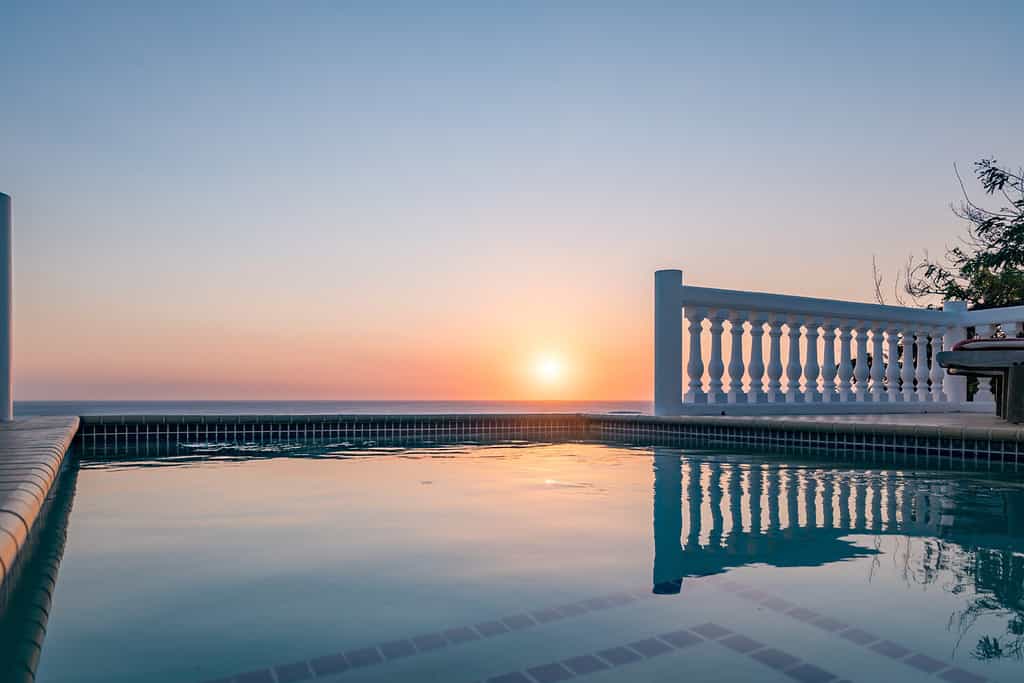
The liqueur, Curaçao, was invented in the island constituent country of Curaçao.
©Greens and Blues/Shutterstock.com
- Population: 148,000
- Capital: Willemstad
- Governor: Lucille George-Wout
The Arawak and Caquetio natives inhabited many Caribbean islands including Curaçao. The Spaniards, however, invaded the island and seized control of power there. In 1634, the Netherlands took control of the island from the Spanish and they have been in power in Curaçao since. Since 2010, it has been a constituent country of the Netherlands after voters overwhelmingly decided to be a separate country within the kingdom’s jurisdiction.
Today, Curaçao is a culturally diverse country with influences from the Dutch, the Spaniards, and native populations. Although oral traditions from the Arawak natives have almost completely disappeared, customs remain. Baseball is big in Curaçao and many major league baseball players are from the island.
Sint Maarten
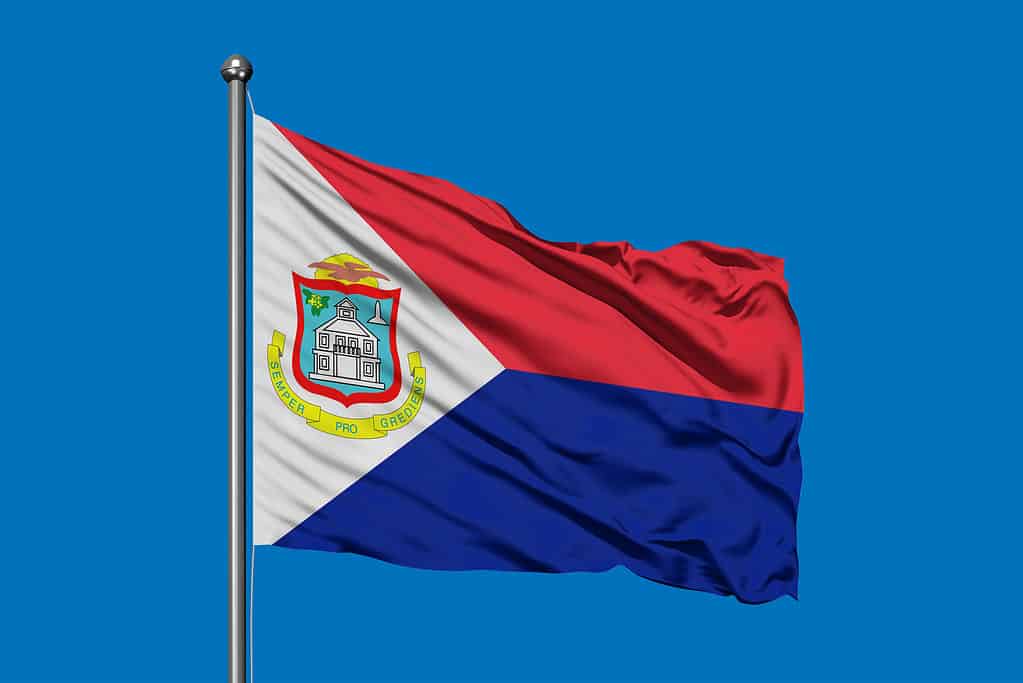
Since half of the island belongs to the French, Sint Maarten has the distinction of being the smallest island in the world being divided between two countries.
©iStock.com/sezer ozger
- Population: 42,000
- Capital: Philipsburg
- Governor: Ajamu Baly
Several Amerindian native tribes inhabited the island country for thousands of years. It was part of Dutch control in the early 1600s but the Spanish snatched up power in 1633 in an island power struggle during the Eighty Years War. After the Spanish abandoned the island, however, both Dutch and French colonists decided to establish roots there. It was agreed that half of the island would be under French control and the other half would be controlled by the Dutch.
In 2010, Sint Maarten became a constituent country of the Netherlands and it has enjoyed free border passage with the French side for several years.
Honorable Mention
It would be remiss to not mention one country that speaks a widely used language derived from Dutch. Let’s delve into the Afrikaans language in South Africa.
South Africa
South Africa was partly colonized by the Dutch in the 1600s. But Dutch isn’t an official language in South Africa. A separate language developed from Dutch and other dialects, a mixture of both African and Dutch. The precise way in which Afrikaans was developed is unclear, but it became popular enough that many people in South Africa speak it to this day.
South Africa was a Dutch colony for many years, but it transferred hands to the British Empire, which controlled the country until its independence in 1961. Throughout the 20th century, South Africa was the subject of international concern with their racial segregation called apartheid. It wasn’t until the mid-1980s that discriminatory laws slowly started to get repealed. Today, South Africa is an influential nation in African politics and has inserted itself as a middleweight powerhouse worldwide.
Conclusion
And there you have it. While there are only 6 countries that speak Dutch in 2024, they are still popular places to visit. Amsterdam remains in the top 10 list of cities tourists go to. Aruba and Curaçao remain popular with tourists who want to go to top-notch resorts. If you go to any of these places, including Belgium, you may find yourself trying to figure out what people say in Dutch. It’s handy if you download a translator app on your phone, just in case.
Summary of 6 Countries That Speak Dutch in 2024
| Country Where Dutch is Spoken | Other Languages Spoken | |
|---|---|---|
| 1 | The Netherlands | English, German |
| 2 | Belgium | French, German |
| 3 | Suriname | Spanish, French, English |
| 4 | Aruba | Spanish, Papiamento, English |
| 5 | Curaçao | Spanish, Portuguese, French, English, and Arawak Indian |
| 6 | Sint Maarten | English, Spanish, Creole |
The photo featured at the top of this post is © Steve Photography/Shutterstock.com
Thank you for reading! Have some feedback for us? Contact the AZ Animals editorial team.



